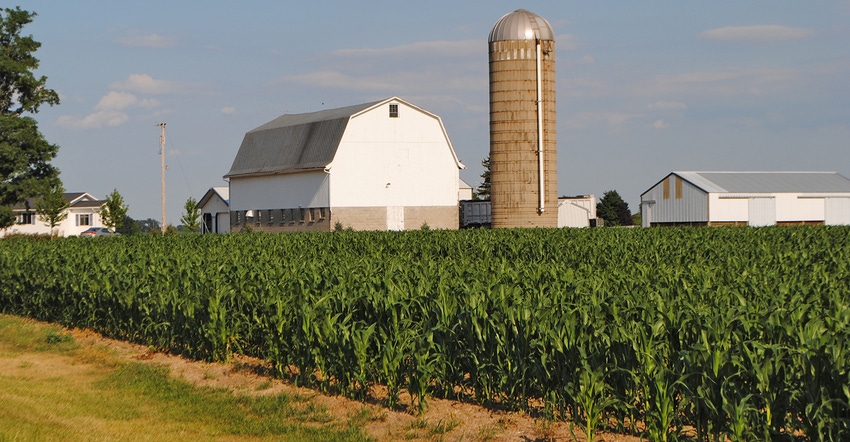April 6, 2017

My wife and I sold our cows and machinery 10 years ago. We both got full-time jobs in town, and we rent our land to the neighbor. We are 65 and planning to retire from our jobs in a couple of years. We have no debt on the farm. We are trying to decide if we would be better off selling our 200-acre farm that we bought 40 years ago and buying a house in town, or remodeling our old farmhouse and continuing to rent our land to the neighbor. We will get about $2,500 a month from Social Security, and we have about $100,000 in our IRAs. The neighbor pays us about $25,000 a year for our tillable land. Our children are married and have jobs and do not want to farm. What are your thoughts?
Hodorff: I would keep your day jobs. The questions you ask will need some thoughtful answers. I would definitely contact a financial adviser to help work through your income stream. With all your options, you will have to focus on your income needs. A financial consultant will be able to give you the income figures and the tax implications. One of the issues you have with your land is it has a low tax basis. The other problem is the government can change the tax law at any time. So your time spent with a financial consultant will be very valuable.
Miller: There are several questions to ask before making your decision. If you sell the farm, you will have capital gains tax to pay on the sale for the difference in cost and the selling price. These funds could be used to purchase a place in town, plus you will need to have some reserves in addition to your Social Security and IRAs to fund your living costs. Complete a monthly budget to determine how far your Social Security will go and if you will need to supplement it from rent and your IRAs. How much will remodeling cost, and will it accommodate any changes in mobility as you age? Meet with your accountant to calculate the expected capital gains tax if you were to sell the farm; then visit with a qualified financial adviser who can assist in modeling how long your Social Security, retirement and remaining investments can provide for your living costs. You are in a good position, but you need some more answers to be able to make the best-informed decision as you move into retirement.
Wantoch: Many baby boomers like yourself are reaching a point where their children have grown, moved out of the house and have no interest in the farm. This transition from full house and actively farming to empty nest and an off-farm job can be filled with excitement as well as stress. The answer to your question depends on your circumstances. You are eligible for Social Security at your current age of 65. If you delay taking benefits beyond age 66, however, benefits will increase about 8% per year. However, I have read that retirees will need somewhere from 70% to even 100% of their pre-retirement income to maintain the same standard of living once they stop working. Have you calculated what expenses you will have in retirement and if your projected income will support these? After working on these calculations, I would encourage you to meet with a financial adviser to discuss these retirement questions.
Agrivision panel: Doug Hodorff, Fond du Lac County dairy farmer; Sam Miller, managing director, agricultural banking, BMO Harris Bank; and Katie Wantoch, Dunn County Extension ag agent specializing in economic development. If you have questions you would like the panel to answer, send them to: Wisconsin Agriculturist, P.O. Box 236, Brandon, WI 53919, or email [email protected].
You May Also Like




